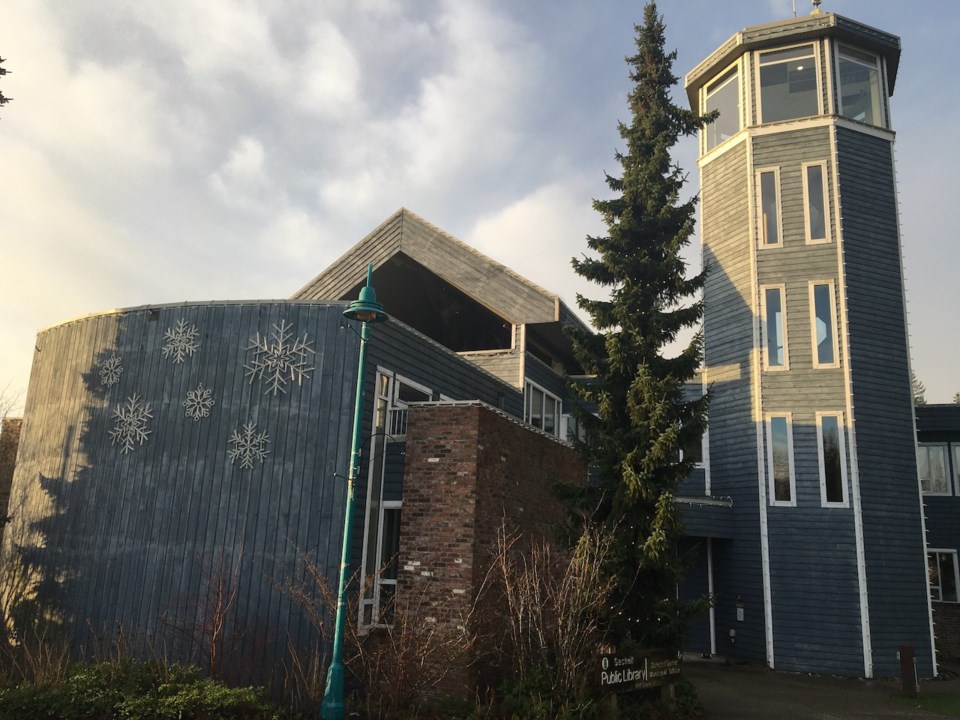At the March 22 meeting, Sechelt council voted to endorse balancing the 2023 budget with a 7.2 per cent tax increase.
The figure now shows a three per cent increase for the capital infrastructure renewal (as was started six years ago) and 4.2 per cent increase for general operations. That second percentage would cover the current deficit presented by staff at $784,340.
A revised number for the sewer operating deficit sees a 6.65 increase to user fees, and the septage increase will match.
A taxation analysis presented in the staff report showed an overall 6.7 per cent increase in District of Sechelt taxes and charges (including municipal taxes, garbage user fee, the sewer parcel tax and sewer user fees). Based on the assessed value of an average home in Sechelt of $1,048,800, the dollar amount is calculated to be $2,029 for municipal taxes and a total of $3,227 for Sechelt taxes and charges. That is calculated to be a $203 difference based on the year before. (House assessed values increased 14 per cent from 2022 to 2023, the report showed.)
That number is a slight increase from the previous budget-related meeting on Feb.24, when council asked staff to clarify a few items, and to explore what could be funded from a reserve or another source. Staff were able to identify additional revenues from short-term rentals, new construction, building permit fees, transferring funding of an RCMP member from the public safety reserve, and $250,000 of the estimated surplus available from 2022.
But a few expense items totalling $455,438 were also tacked on. Those additions included bylaw protective equipment, software, a joint field strategy, library funding, an Official Community Plan update, Development Cost Charges update and other items. The general operating fund also includes two contingencies. Affordable housing was taken out of the reduction list, as requested by council. Four of those expenses could be funded from the reserves or other sources.
“We inherit a lot of things as a new council and there’s nothing wrong with that, but we're reacting as a new group. By this time next year, we'll be very much aware of everything that's on the plate,” Mayor John Henderson commented during discussion.
Coun. Darren Inkster, who has served multiple terms on council previously, said he’s struggling with the tax increase, and commented that he never brought in a 7.2 per cent increase before, certainly not in his first year (of a council term).
Henderson responded that since the first round of budget, staff have found around $675,000 of additional revenue. “But then we've also found a need, we as council have agreed to probably half a million dollars of extra spending. So we've reduced the funding required, but you're right, the arithmetic is still high,” he said, adding, “We can watch for other jurisdictions and see how we measure up to them.”
Coun. Donna Bell, a newcomer to elected office, said, “I don't want to see these kinds of numbers either. But I think we're really in catch-up mode right now. As we look back in terms of the increases over time, they've been very low and we've had a lot of catching up to do on our infrastructure. We've got a lot of aging infrastructure, and if we don't invest now, we are going to be further down the road. As things continue to go up in terms of cost, etc. We're going to be in… a worse situation.”
Coun. Alton Toth asked what a one per cent tax increase is for the average household, to which staff answered a one per cent tax increase is nearly $19.
Council decided to endorse the staff report and direct staff to prepare the five year financial plan accordingly. That plan will be presented to council and at the next meeting, staff will ask for three readings. The five-year financial plan must be adopted by May 15.



